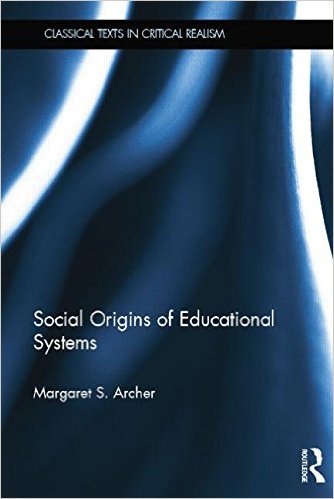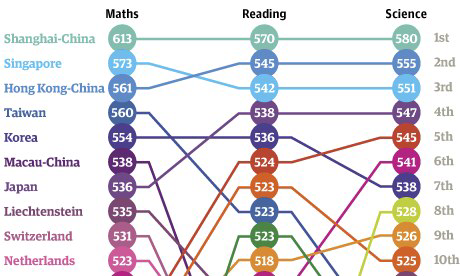|
This year's A level analysis from the Guardian. 'The small range of movement in exam results is a result of the use of a technique called comparable outcomes, adopted by exam regulator Ofqual in 2011 as a means of curbing grade inflation. It ties A-level grades to the same year group’s previous results in GCSE exams two years earlier.' It will be interesting to see whether the comparable outcomes technique remains for subsequent years. https://www.theguardian.com/education/2016/aug/18/a-level-results-show-another-drop-in-a-and-a-grade-students?CMP=Share_iOSApp_Other
0 Comments
Excellent article. Ignore PISA. And subvert the discourses of neoliberalism. https://www.tes.com/news/school-news/breaking-news/ignore-pisa-entirely-argues-top-academic
 Archer, M.S (1979) Social Origins of Educational Systems. Abingdon, Oxfordshire: Routledge. Margaret Archer’s book, which considers the structural and cultural origins and determinants of educational systems, was first published in 1979. Nonetheless, events in education over the last 20 years in England indicate how powerful and relevant her analysis of centralized and decentralized education systems still is. In Archer’s analysis, government is identified as a significant barrier to educational change in polity-driven centralized education systems. In the 1990s, Blair and Blunkett, and more recently Gove and Morgan, introduced and have supported a centralized model of education where governmentality is key. In such a model, the professional and political demands of the teaching profession and of other interest groups cannot and do not have a direct impact on education. In contrast, the introduction of comprehensive schools in the 1960s and 1970s (interestingly, with the pace of change being faster under the Tories than under Labour) belonged largely to teachers, who Archer suggests were able to ‘make their own comprehensive schools’ rather than having to adhere to a ‘doctrinaire’ about ‘a comprehensive school’ (p.595). This more decentralized model resulted in successful change. However, since then, successive education secretaries, most notably Blunkett and Gove, have eroded the agentic powers of teachers and of the teaching profession, for example through the introduction of academies and multi-academy trusts, the establishment to the National Curriculum and the insistence on standardized testing. The reintroduction of a new College of Teaching could have held out the promise of an end to this erosion of teachers’ agency. But sadly, early indications are that the College will not have the incisor-like teeth that the BMA has. There is no real hope, at least as yet, that the College will be able to facilitate teachers in taking back control. Archer’s conceptual framework and analysis of educational change still stands up in 2016. Her warning, that the 1968 French événements were to some extent a result of educational centralization, is one that we should take seriously. In a post-Brexit England, where the prescribing and proscribing influences of parochialism and neoliberal governmentality seem frighteningly ever more close, we would do well to heed the lesson that the grande dame of social theory gave us nearly forty years ago. |
About me...
I was a psychology and social sciences teacher for many years and now I am in the throes of a leadership, teaching and research career in HE. I care passionately about education. This blog will show you why and how.
Categories
All
Archives
March 2023
|




 RSS Feed
RSS Feed